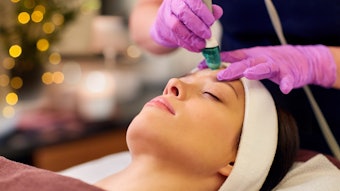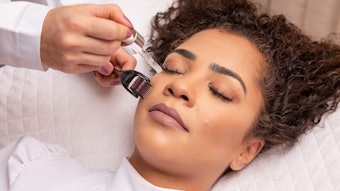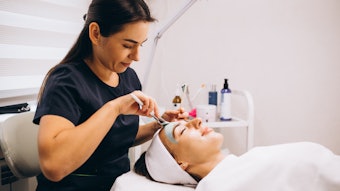Due to the nature of elective, cosmetic procedures, medical aesthetic providers face a higher risk of professional liability and ethical allegations than many other medical specialties. These allegations can come from a variety of sources, including advertising and marketing messages, dissatisfied patients and even conduct unrelated to your practice of medicine, such as a drunken driving violation. Attorneys that represent disgruntled patients in professional negligence matters will often suggest that the patient file an ethics violation first. This can be used to bolster claims of negligence in the liability suit. Accordingly, it is important that medical aesthetic providers understand how to reduce the risk of complaints and what action must be taken in the event of an ethics charge.
Reducing the Risks
The first consideration in this discussion is patient selection. If your instincts tell you that a particular patient may expect too much or have unrealistic expectations, do not treat her. I advise providers that, “it is not the patients that you treat that will make you successful, it is the patients you choose not to treat that will make you successful.” Marketing 101 dictates that it takes 10 successful patients to get one referral, but it takes only one disgruntled patient to lose 10 patients. Many ethical issues arise out of unrealistic patient expectations. Avoiding certain patients from the outset will substantially lower your risk of allegations. Patients often complain to a medical board because they are unhappy with their result and they feel this is the provider’s fault.
In regard to patients, you must document every appointment and discussion of care in the chart and it is in your best interest to document it immediately, not a week later.
Another significant source of ethical violations is advertising and marketing messages, particularly for procedures that are “off-label.” Ethical complaints can also arise from conduct in your personal life, particularly criminal offenses, and the trend is toward more scrutiny.
Image copyright istockphoto.com
[PAGEBREAK]
State Medical Board Requirements
There is a potentially damaging ethical issue that many aesthetic providers fail to consider: You have a duty to disclose to your state medical board and certification board any conduct that may become an ethical issue in the future. In other words, if something occurs in the office that may put you in an ethical conundrum, you have to report it. Failure to report can give rise to additional sanctions or loss of board certification. Affirmative reporting also decreases the risk of severe sanctions for alleged unethical situations because you cooperated in advance.
I strongly recommend that whenever you feel that you are in an ethical conundrum, write to the state medical board and ask for their guidance. This is very powerful. They cannot charge you with an ethical violation if they participated in the course of action. They may choose not to respond to your query, but the fact that you sought their guidance and counsel is compelling.
If you receive a letter from your state medical licensing board, pay strict attention to the action items that the board is requesting. The boards typically ask for a response within 10 days. I suggest that you formulate an initial response that acknowledges receipt of the allegation and tactfully denies that any unethical conduct occurred. Also indicate that your initial response is a preliminary one. You will provide a more thorough reply after you review the chart and interview any staff members who were involved in the patient’s care. I should also mention that if your staff member behaves unethically, you are responsible. For example, a medical provider would be liable if a staff member divulged confidential patient information.
I suggest that you send a definitive response about 30 days after your initial reply. Do not wait for the state board to ask for the additional response. The definitive response will include your version of the incident as well as any supporting documentation. It is important to interview staff members that may have engaged the patient and include a summary of their versions of the incident. The fact that you thoroughly investigated the matter prior to response will go a long way toward a successful outcome. It is prudent that you do not say anything negative about the patient. If the patient has anger issues, unrealistic expectations or other psychological issues, the view will be that you should not have treated the patient. Refer to the disgruntled patient with empathy and respect in all of your correspondence. Express sorrow that the patient feels that something unethical occurred.
[PAGEBREAK]
You may not receive any additional correspondence from the state licensing board for a long period of time (a year is not unusual). This does not indicate that the board is no longer pursuing the matter. The entire process can take up to three to four years. It is also prudent to hire an attorney to represent you. Many physicians indicate to me that they are afraid to hire an attorney because it may appear that they are guilty. There is nothing further from the truth. There are procedural guidelines and rights that you have, and it is proper to hire an attorney to represent you. The state boards expect this, and it is the responsible thing to do.
Certification Board Requirements
Your duty to report alleged ethical violations also applies to member organizations such as the American Society of Plastic Surgery (ASPS, plasticsurgery.org) and the American Academy of Dermatology (AAD, aad.org). In fact, if you read the regulations of certification boards and member organizations, you will see that you have to report a wide variety of events, including criminal investigations and alleged insurance fraud from even a home owner’s insurance claim.
In order to comply with the licensing board or member organization requirements, you need only to send a letter indicating that an allegation has been made against you, that you are appropriately responding to the allegation and that you believe there is no merit to the allegation. You will probably never hear from them again, but you will have complied with the requirements for certification or membership. Thus, there is a much greater chance that nothing will happen to your certification or membership.
Padraic B. Deighan, JD, PhD, is president of Aston McLaren, a medical and spa consulting firm, and the former president and CEO of DermAmerica, the nation’s largest network of dermatology and plastic surgery centers. Contact him at 877.557.9669, www.medicalandspaconsulting.com











